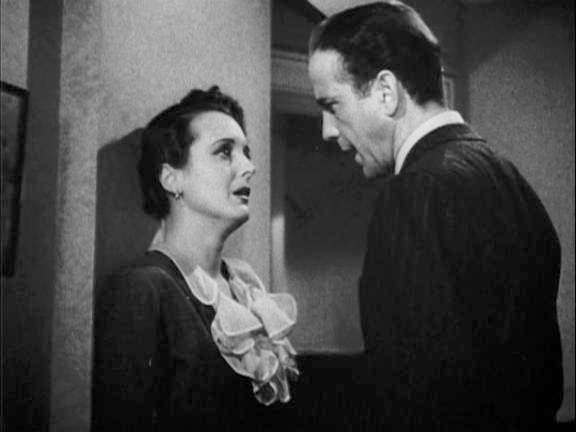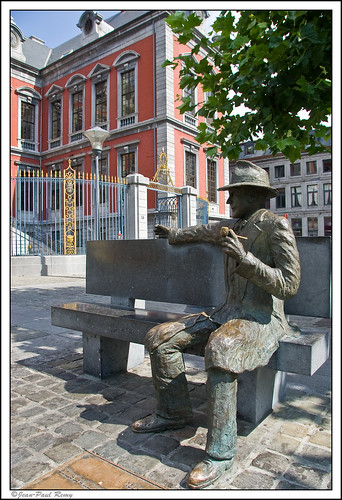This spring, Winter returned with a second book, Barren Cove—which is equally (if not as epically) magnificent but which also shows Winter taking his talent in a different direction. Instead of a crime novel, Barren Cove is more solidly a family drama; a visitor staying in the guest cabana of a Victorian estate interacts with the mysterious and clearly troubled family living in the main house: the beautiful and haunted Mary, her larger-than-life brother Kent, the mischievous Clark, and then the reclusive Beachstone, whom the property is named after but whose sickness keeps him hidden away in his room.
Oh, and one more thing: Nearly all these characters—everyone but Beachstone—are robots.
Winter offered me the chance to speak with him about the new book—thrilling in many ways from a writer’s perspectives (and a reader's too, I should stress) but also challenging in a world where branding and marketing and categories are the order of the day.
ART TAYLOR: Barren Cove clearly signals a shift in genre, with its futuristic setting, with robots as the primary characters, even in the labeling with "science fiction” mentioned prominently in one of the back cover blurbs. Have you been as big a reader and a fan of science fiction as you are of mystery fiction? Are there specific authors here, as with The Twenty-Year Death, that was an influence?
 |
| Ariel S. Winter |
Growing up, I read the classics, Asimov, Bradbury, Clarke, Douglas Adams, several of whom I pay homage to in Barren Cove through characters' names. Then as I got older I moved on to Philip K. Dick, Jonathan Lethem, Alfred Bester, Thomas M. Disch, and I'm still filling in some of the gaps in my reading. I finally read the Dune books last year and was blown away.
As for influence on Barren Cove, it's less about style, and more about world building. I imagined that all robot fiction up to now takes place in a shared universe, so that the great robot books are detailing a continuous history. In R.U.R. by Karel Capek, the action takes place exclusively in a factory where robots are just first starting to be manufactured. By I, Robot, robots are an integral part of human life, but the laws of robotics put limits on their actions, and helps to keep them separate from humans. In Do Androids Dream of Electric Sheep? robots are indistinguishable from humans, even passing as human, and they are pervasive, but they're supposed to still be inferior socially. Barren Cove is the next book in that history, the point at which robots are now the majority, and humans are second-class.
While your two books might seem to readers very different, the interest in genre seems a central connection—not just in the specific genres of police procedural or hard-boiled detective novel or noir or science fiction, but in the idea of genre itself: what constitutes genre, how are specific genres defined, how does all this guide reader expectations. My questions for you: What is it about genre more generally that interests you and drives your writing? Is it exploration, experimentation, commentary on genres and genre-building or…?
I've always been excited by books that push the boundaries of form. Writers like Mark Z. Danielewski with his typography and page layouts, David Mitchell with his genre jumping within a single book, and writers like Faulkner, B.S. Johnson, Jan Potocki, E.T.A. Hoffmann, and Laurence Sterne. Two of my favorite books, and the ones that probably had the greatest influence on Barren Cove are Frankenstein and Wuthering Heights, both of which play with multiple narrators, frame stories, several different forms such as journals, letters, and stories given orally that were subsequently written down, adding another layer to the trustworthiness of the story itself. So form is usually as big a driving factor in my work as genre is. And since genre carries with it certain expectations and conventions, it gives some kind of structure on which to lay formal experimentation. That makes it sound like genre is merely a tool though, and that's not right, because it goes back to wanting to write the kind of books I love, which are broadly defined, as I said earlier. I usually start with genre in the same way that I would decide to pick up one book or another to read, simply because it seems cool. Then as I explore the genre, I like to challenge it.
“Branding” is a big buzzword for authors today. After all the recognition you earned for The Twenty-Year Death, did you feel any pressure—from your editor or your agent or from readers or from self—to write another crime novel? Or any opposition to the book here that you did write?
The short answer is “yes.” The book that my agent and I tried to sell after The Twenty-Year Death was actually a domestic drama, literary fiction. We got some excellent feedback, several editors who were very serious about it, but they just couldn't sell it to their marketing and sales teams because it wasn't a mystery, and I was a mystery writer, even though I'd only published one book. In frustration, I pulled out Barren Cove, which I originally wrote in 2004, expanded it quite a bit, and we then went out with that. It was still a different genre, but it was mostly finished, and we could go out with it quickly. We met with a lot of the same resistance. People loved it, but it wasn't a mystery. I was lucky enough to finally find editors who were willing to take the risk, but it proved a real challenge for marketing, and it's met with mixed results. I've had to admit that while I insisted that a writer can jump genres, I've sort of been proven wrong. That's not because readers won't read across genres, which was a lot of my argument, because of course they will. But that the book publishing world from marketing to reviewers to bookstores are separated by genre so much that it isn't a question of finding readers who will follow you, but rather, of having access to the same people who covered your previous books in the press. It's a lot about the network. So, yes, I'm now being gently encouraged to return to crime. I've spent the last few years working on a fantasy, but that might get put on hold.
While the narrator and most of the characters in Barren Cove are robots, their struggles—both the conflicts between characters and then their internal, existential troubles—seem all too human. Ultimately, this is a story about identify and family and relationships. Why not just write a family drama? one without robots?
Someone asked me that at a social event a few years ago, and I was really taken aback, because it was such an astute question, especially given that she hadn't read the book. The answer is because robots can be immortal, replacing parts and upgrading indefinitely, and the possibility of immortality, which you can't have with human characters, really changes the nature of the existential question about death. If you don't have to die except by choice, why would you ever choose to die? It's a different question than we usually ask.
I also used robots, because as I said before, I like books with an unreliable narrator, which can sometimes be chalked up to a question of memory. But robots have perfect memories, so how accurate is a story when the memory is perfect? At the same time, however, robots, as computers, can have their memories erased or rewritten, so how trustworthy are they then?
I used the word “existential” before—but it’s not just questions of existence but also concerns about mortality, about death, that stood out to me reading it. What themes or issues drove you in writing this story? Or do you even think of themes in that way when you’re writing?
So I either start with genre or story, and that was the same here. I wanted to write something like a number of books I loved, so I looked at Wuthering Heights and Philip K. Dick and others, and said, I want to do something like this. The themes then develop organically in the writing. I'm not like Cormac McCarthy who seems to build a story around the idea of fate. Instead I build a story, and since I try to keep the stakes high, themes emerge. In The Twenty-Year Death, that became about losing a family member. In Barren Cove it became a question of why do we live. Then I go back and accentuate it in the rewrites. That being said, it's more important to me that a book is fun to read, that the story is compelling, than whether it's conveying an idea, so I try to use that as my guiding principle throughout.













